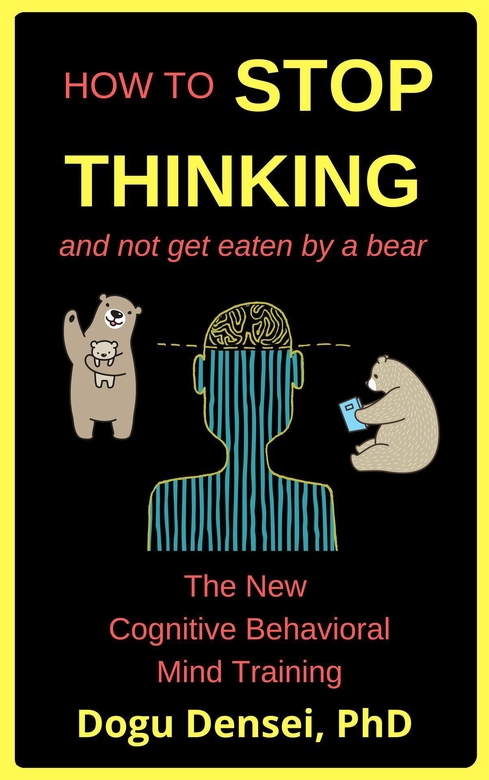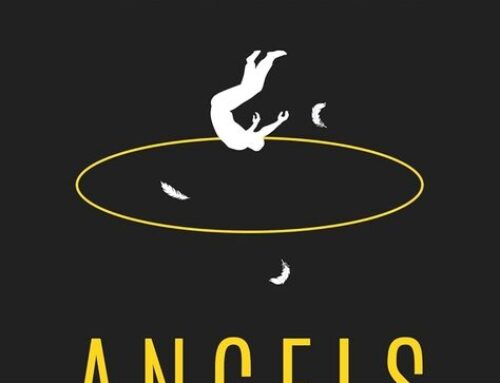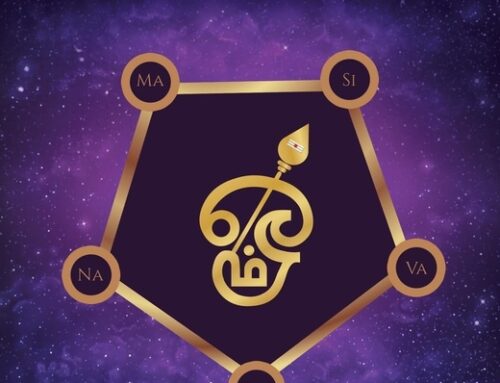
Author Dogu Densei, PhD shatters the stuffy traditions of academic texts with How to Stop Thinking And Not Get Eaten by a Bear: The New Cognitive Behavioral Mind Training. A deep dive into the realities and mysteries of the human mind, from out-of-body experiences and OCD to meditation, psychiatric disorders, and daily mindfulness, this tome is both whimsical and wise.
Broken up into three main sections, the book broadly focuses on turning off your mind, learning how to control and manage your thoughts, and then exploring how to escape the natural boundaries of consciousness. As the title implies, the author’s intention is to help people overcome anxiety and worry, and find a way to become the master of their own mental domain, but there is far more to Densei’s writing than just a cursory overview.
With a tongue-in-cheek style that is both mischievous and unexpectedly brilliant, this anti-overthinking guide will make you laugh out loud, but also might help to restructure your life and the cognitive pathways driving it. Many chapter titles are thought-provoking, either through wordplay, humor, or innuendo, acting as a repetitive reminder to not take yourself – or the text in hand – too seriously. This is juxtaposed with the mountain of research that clearly went into writing this book, from in-depth examinations of therapy protocols to rhetorical dissections of philosophy, emotions, anxiety, and decision-making.
Approaching the puzzle box of human thought with a fresh and creative energy, Densei excels at putting subjects into accessible frames for readers of all levels. For example, he uses cigarette smoking to describe something being “meditative” without actually being “meditation.” By discussing complex ideas in more inviting or relatable ways, the book has more explanatory and storytelling power. Some of the topics within the book are heady, to say the least, and can feel circuitous, esoteric, or almost mystical, so this immediate relatability is key.
Occasionally blurring the boundaries between spirituality, science, experimentation, assumption, and lived experience, the book demands critical thinking and the ability to separate the ideological position of a clever author from the hard facts he uses to support his arguments. At times, the wild and “unadulterated” vibe in the prose can undercut Densei’s authority during the more straitlaced sections. Most chapters and sections stay focused on the subject at hand, but others feel distracted and misdirected, with the author interrupting himself to make wisecracks, clarify earlier points, or wax philosophic on seemingly unrelated topics.
The references to Kurt Vonnegut, Douglas Adams, George R.R. Martin, and other authors/thinkers can be distracting in particular, as they seem to lack a clear purpose. The inclusion of frequent quotations and allusions keeps the energy of the writing high, but it also can create a tangential tension, as though Densei may leap to a new subject without any warning – for a joke, a paragraph, or a whole page – losing some focus in the process.
Despite some critiques in execution, the book excels in architecting a powerful point, then showing how it could improve a person’s life, without ever losing the readers’ interest. Overall, this wild ride into the wilderness of the mind covers fascinating new ground in the genre, helped along by the author’s unbounded sense of humor, which eases readers into some very heady topics.
Book Links
STAR RATING
Design
Content
Editing
Get an Editorial Review | Get Amazon Sales & Reviews | Get Edited | Publish Your Book | Enter the SPR Book Awards | Other Marketing Services























Leave A Comment